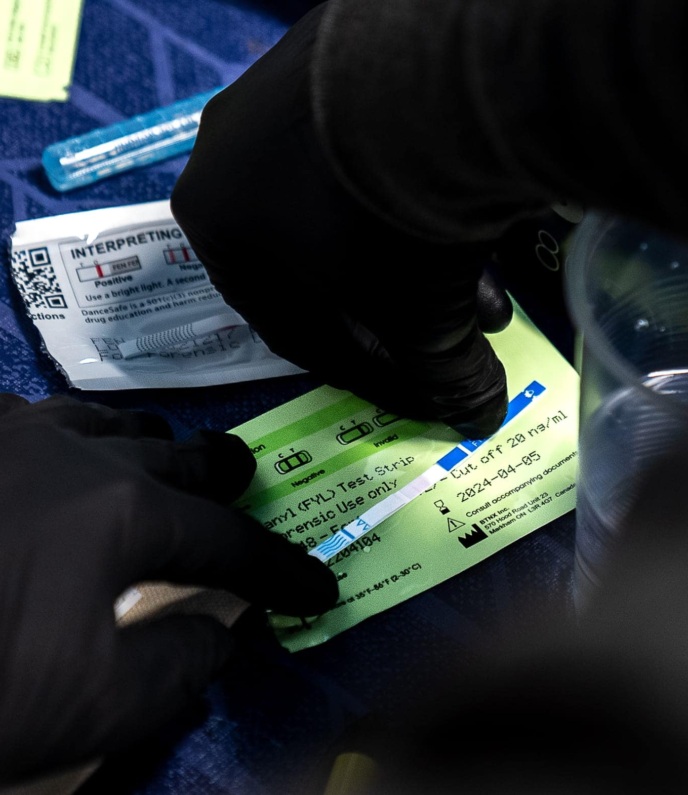Don’t let Congress ramp up the drug war by increasing penalties for fentanyl analogues.

Prioritize A Health Approach to Fentanyl and The Overdose Crisis.
To save lives, our government must prioritize a health approach to fentanyl and the overdose crisis, not more punishment. But sadly, Congress is seeking to increase drug penalties for fentanyl analogues in a misguided effort to help end overdoses. (Fentanyl analogues are substances chemically similar to fentanyl.) Yet, we know that drug prohibition only leads to stronger, more potent, more available illicit drugs. Criminalization has already failed time and time again to keep our communities safe. We must reject any further notion that this time—or for these substances–it will be different. It’s time to prioritize health approaches to fentanyl.
Keep Communities Safe from Overdose. Prioritize a Health Approach, Not More Criminalization.
Despite the U.S. prioritizing the criminalization of drugs, overdose deaths remain high and continue to rise in some communities.
Source: CDCFentanyl criminalization disproportionately targets, sentences, and incarcerates people of color and low-level drug sellers.
Source: ACLUCriminalization dissuades people from seeking help for fear of criminal penalties or other consequences.
Source: Pew Research Center
Some Elected Officials Continue to Call for Punitive Criminal Drug Policies.
There is growing public acceptance of the fact that drug use is a health issue, not a criminal one. Unfortunately, some elected officials and members of law enforcement continue to call for punitive criminal policies. They have spread misinformation to drive up support for policies that hurt people instead of helping them, such as calling for criminalizing fentanyl analogues.
Drug Prohibition Only Leads to Stronger, More Potent, More Available Illicit Drugs.
Increasing drug penalties for fentanyl analogues (illicit substances chemically similar to fentanyl) is a misguided effort to cut off the supply and reduce overdose deaths. We’ve already been down this road before, and it doesn’t work. It just creates more harm. Restricting prescription opioids did not end demand for opioids. Instead, it just sent people to the underground heroin supply. Crackdowns on heroin led suppliers to produce cheaper, more potent, and easily smuggled fentanyl.
Harsh fentanyl penalties incentivized fentanyl analogues to flood our markets. And now, history is once again repeating itself with the increased criminalization of fentanyl analogues.
Criminalizing Fentanyl is Leading to New and Even More Unknown Drugs, Like Xylazine.
The criminalization of fentanyl analogues more generally is leading to new and even more unknown drugs, like xylazine. We are increasingly seeing xylazine, etizolam, benzodiazepines, and nitazenes overtaking some markets as a result of harsh crackdowns on fentanyl analogues.
Simply put: crackdowns put us in a game of whack-a-mole. When we try to eradicate one drug, a new one comes up. Often, it is a drug that consumers are not prepared for or has unpredictable effects. As a result, it creates more harms, because people who use drugs are not aware of what they are using or how strong it is.
Congress Must Pass Health-Centered Fentanyl Legislation to Mitigate the Overdose Epidemic.
The most effective ways to address the presence of fentanyl and other analogues in our drug supply are evidence-based health and harm reduction approaches. And they are the only way we are going to turn the tide on the overdose crisis.
Instead of further criminalizing substances, we need a robust public health approach. This includes:
- Increased research, including testing of fentanyl analogues, to understand benefits and harms;
- Public education campaigns that teach people about the unknown and untested illicit drug supply. And in some cases, they should be taught how to more safely consume drugs to avoid injury or death;
- Expanded addiction services and social supports, including evidence-based treatment and recovery services;
- Easier access to medications like methadone and buprenorphine to treat opioid use disorder;
- Increased lifesaving overdose prevention services. This includes greater access to the overdose reversal drug naloxone, drug checking tools like fentanyl test strips, syringe service programs and overdose prevention centers.

